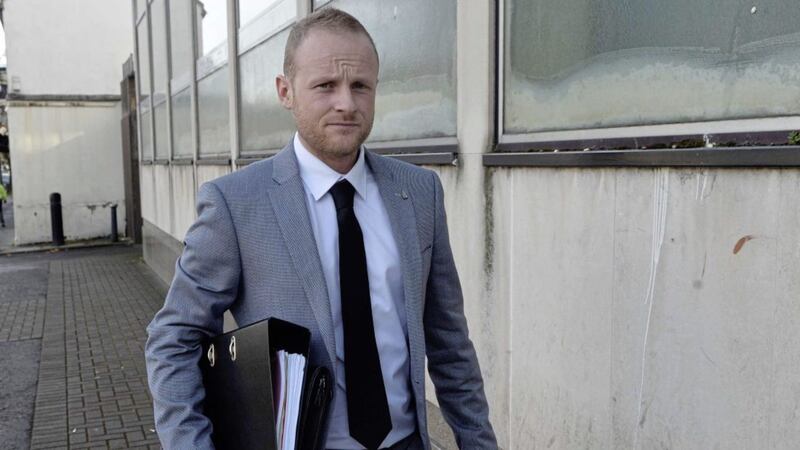WARRANTS to search addresses linked to loyalist blogger Jamie Bryson as part of an investigation into the supply of door staff will not be formally quashed, the High Court confirmed yesterday.
Even though the permits were already held to have been wrongly obtained, judges declined to grant the remedy sought in Mr Bryson's challenge.
Mr Justice McCloskey identified a failure in the "duty of candour" before confirming the final order. Following the outcome Mr Bryson vowed to continue with his legal fight.
Proceedings were brought over the legality of warrants obtained from a lay magistrate to search two residential properties and business premises in Co Down last August.
PSNI officers obtained authorisation and executed the raids on behalf of the Security Industry Authority for the regulatory body's inquiries into any suspected illegal supply of staff.
Documents, laptops and an iPad were reportedly seized. Mr Bryson claimed police had no power to take journalistic and other legally privileged material during the operation.
A County Court judge, rather than a lay magistrate, must give the go-ahead to seize such documents under the relevant section of the Police and Criminal Evidence (PACE) Order, he contended.
His lawyers argued that the decision to seek the warrants under Article 10 of PACE was unlawful because the PSNI knew he is a journalist and in possession of "excluded material" under Article 11 of the same legislation.
During the hearing it emerged that criminal proceedings have been commenced against Mr Bryson.
The SIA is prosecuting the 29-year-old for allegedly stating a company in which he is a director has never traded. He denies any wrongdoing.
Earlier this month the court ruled his challenge most succeed because he had established police should have known the materials they were pursuing would, as a realistic possibility, contain journalistic material.
Returning to the case yesterday for a final order, Mr Justice McCloskey said there had been a "manifest failure" by Mr Bryson to discharge his duty of candour.
"The applicant, in contravention of this duty, elected to provide the court and the respondents with the large quantity of material evidence available to him in a manner of his choosing, piecemeal and staggered. This is unacceptable," he held.
He went on to confirm: "It would be inappropriate in the exercise of the court's discretion to grant the applicant either of the remedies in play - namely a quashing order or a declaration."
Mr Justice McCloskey said the overall judgment provides Mr Bryson with "such vindication as he's entitled to, notwithstanding the substantial reservations this court has expressed about the manner in which the proceedings were both initiated and conducted thereafter".






